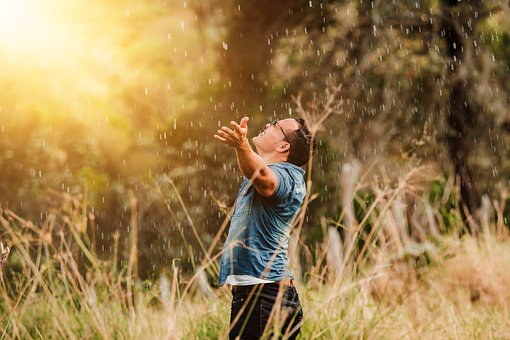It is already October 18, almost a third of what was supposed to be autumn has passed and the rainfall is still not there, apart from some precipitation/showers here and there and even near-scorching forecasts for the coming days! The kingdom is coming out of a catastrophic year in terms of rainfall and is entering a period of great uncertainty. The king explicitly sounded the alarm. There remains the action, urgent.
What made Morocco successful during the Covid period is its sense of anticipation and its rapid and resolute action, and the same thing happened for the water strategy, with Plans and actions, decisions and constant revaluations. However, today that the rainfall situation does not seem to be improving, Morocco still and more than ever needs concrete, urgent actions.
The government understood this, or at least seems to have understood it, by announcing measures against hydrophagic crops. The problem is in the half-measures… we really feel the problem, we even feel the urgency of dealing with it and providing solutions, but, strangely, inexplicably, we are taking half-measures! The reason seems to be in the very fact that these cultures are not unanimous on their hydrophagic side.
Indeed, the debate is open between the proponents of the economic thesis and those of the water logic. The former defend so-called hydrophagic crops by recommending the regulation, management and balance of water between economic advantages and water disadvantages; as for the second, they are placed in the environmental approach and in the need for the sobriety of consumption. All are right because all develop their arguments by unrolling figures more convincing than each other, relevant and supported by rational arguments. But everyone can also be wrong, given the evolution of the water situation.
And so, in this country, what is lacking once again, once again, is the national, public, media and media debate, so that public opinion can make up its mind and that political leaders can work out sustainable, lucrative, profitable and economical strategies. Bringing together agronomists and agro-industrialists, academics and environmental specialists, civil society associations and other environmental activists, committed and enraged people… Morocco cannot do without such a debate to avoid shortages and drying out.
In the meantime, let’s get back to the figures… with potential water resources estimated at some 22 billion m3 per year, agriculture consumes approximately 87% of the water, for a contribution of 14% to the GDP and a rural population representing a little less than 40% of the total population. It would seem that there is an imbalance, on the basis of which we must think of future public policies.
The positive point regarding the kingdom’s water policy is that the various officials have taken full measure of it. The policy is in working order, at the level of the ministry (dams, hydraulic interconnections, desalination, etc.) and the executive aspect, through ONEE, among other actors, sets in motion its various multidirectional policies to extend the public policies adopted.
But for the success of all this coupling, a debate becomes unavoidable, both to define a new agricultural policy which would be, which should be different from what it has been until today, but also to guide agricultural investments, industrial and agro-industrial and finally for the sensitization and awareness of the population towards a more rational consumption, more economical. A debate that could and would even benefit from being initiated by the Ministry of Water, a debate like the one that ONEE has just organized recently in Salé, but broader, more regionalised, more regular, more… national .
Faced with a political class which, every fall, raises its eyes again and again to the sky (for rainfall and spirituality) in order to watch or to hope for a “good year”, it is time to involve society, in all its components, to become more down to earth, even more underground to find water where it is, and use it to the best.
Aziz Boucetta
(Ticket 755) – Water, a national problem that would require… a national debate

